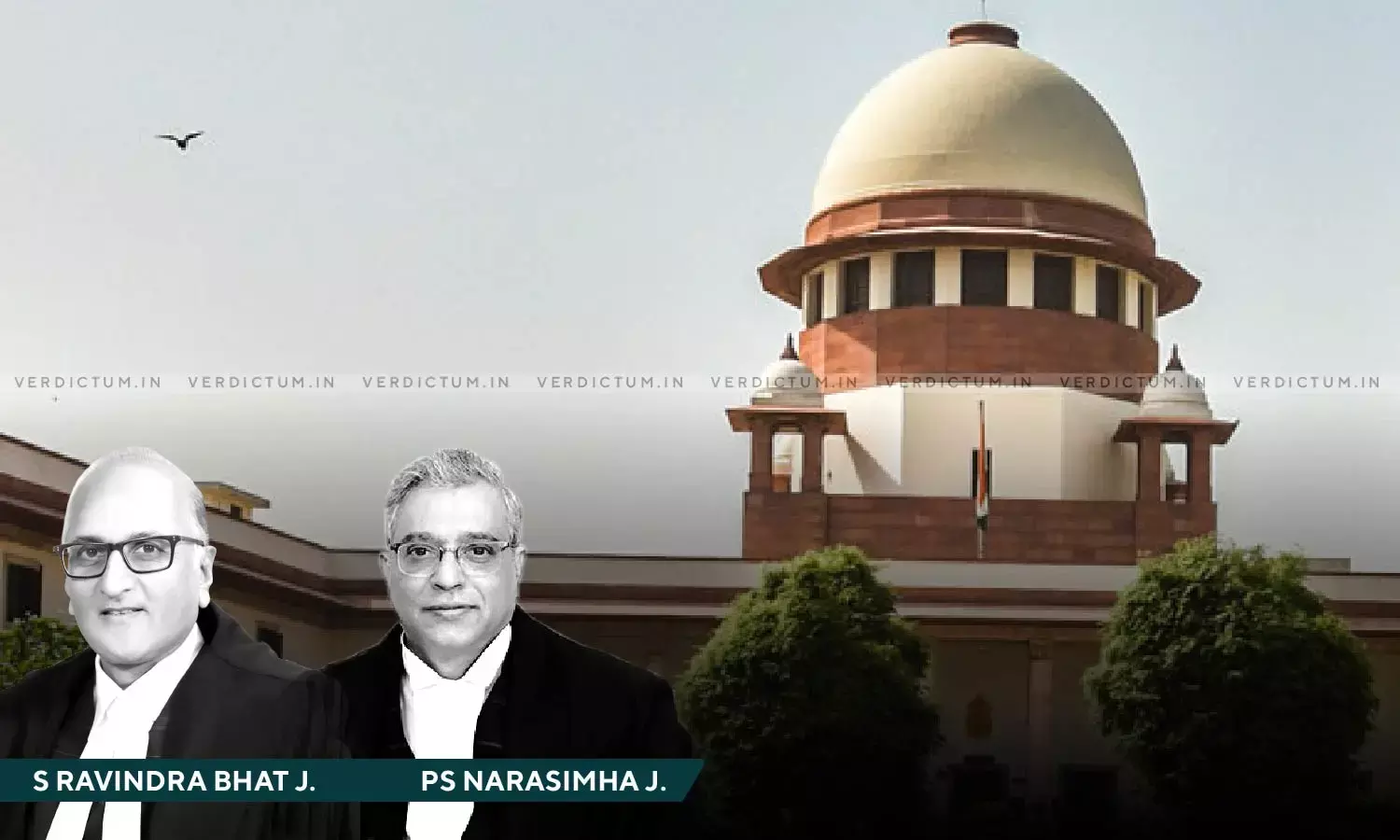Remand Question Of Including Non-Woven Bags Within Single Use Plastic Products Ban Back To TNPCB For Consideration: SC Directs

The Supreme Court has remanded back the question of including non-woven bags within the single use plastic products ban to the TNPCB i.e., Tamil Nadu Pollution Control Board for consideration.
The Court was dealing with a batch of civil appeals against the judgment of the Madras High Court by which it dismissed the writ petitions of the appellants challenging a government order banning manufacture, storage, supply, transport, sale, distribution, and use of ‘one time use and throwaway plastics’. The appellants before the court were an association representing manufacturing units involved in the manufacture of ‘reinforced’ paper cups, and a manufacturer of non-woven plastic bags, respectively.
The two-Judge Bench comprising Justice S. Ravindra Bhat and Justice P.S. Narasimha directed, “Given that the amended 2016 Rules now allow non-woven bags above 60 GSM to be manufactured and used, i.e., the Centre has found a way to regulate it, rather than ban it – there is some merit in the appellant’s contention regarding disproportionality. If a less onerous restriction on the appellant’s Article 19(6) right is possible, it must be favoured. In light of the developments in terms of the amendment to the 2016 Rules, this court is of the considered opinion that it would be appropriate, and just, to remand the question of including non-woven bags within the single use plastic products ban, back to the TNPCB for consideration.”
Advocates Balaji Subramanian and A. Lakshminarayanan represented the appellants while Advocate Gurmeet Singh Makker represented the respondents.
In this case, the Environment and Forest Department of the Government of Tamil Nadu issued the Government Order in question, in exercise of its power under Section 5 of the Environment Protection Act, 1986 (EPA) on June 25, 2018 and it was to take effect from January 1, 2019. The Government Order included directions, banning manufacture, storage, supply, transport, sale, distribution, or use of “use and throwaway plastics” – which included plastic carry bags, plastic flags, plastic sheets used for food wrapping, spreading on dining table, etc. plastic plates, “plastic coated teacups” and plastic tumbler, water pouches and packets, and plastic straws, regardless of thickness. Pertinently, non-woven bags were not expressly mentioned until a clarification issued by the state government, brought them within the scope of the ban.
Pursuant to the Government Order, a Steering Committee headed by the Chief Secretary of the Tamil Nadu Government, was constituted to monitor and implement the Notification. The appellant paper cup association made a representation in 2018 to the Government to reconsider and exclude them from the ban. Pursuant to this, an Expert Committee was constituted to study and furnish a report on the compostable properties of paper cups and compostable plastics which concluded that the LDPE made such cups non-biodegradable, but recyclable. However, due to insufficient collection mechanism or failure on the part of extended producer responsibility they are not being recycled. The association’s representation was rejected by the TNPCB and similarly, the non-woven bag association’s representation was also rejected. Aggrieved by the ban, the paper cup association challenged the notification before the NGT which was dismissed and thereafter, the High Court also rejected the petitions and upheld the ban.
The Supreme Court in view of the above facts observed, “If one keeps in mind the larger public interest sought to be subserved by the impugned government order, and also importantly the circumstance, that the Central Government notification dated 01.07.2022 has resulted in a complete ban on single use cups among other use and throw plastic products, the public interest cannot be ignored.”
The Court held that though the mandate of the rule calls for pre-decisional hearing, the resultant likely injury to the public in the event the notification is interfered with, interests of justice require that such infraction should not result in the invalidation of the notification.
The Court while dealing with the issue of paper cups noted, “… the contention that the ban is over inclusive, and disproportionate, are in the considered opinion of this court, not made out in relation to reinforced paper cups. The appellant’s right under Article 19(1)(g) has, without a doubt, been restricted; but in the larger interest of the general public to enjoy a pollution free environment the restriction was reasonable as per Article 19(6) of the Constitution of India, and is therefore, upheld.”
On the other hand, while considering the issue of non-woven bags, the Court said that unlike reinforced paper cups, these bags are reusable, recyclable, and capable of some level of biodegradation (based on the composition), but no committee was constituted to looked into it more closely, and it was in fact brought within the scope of the ban subsequently by way of clarification; hence, the ban of such product deserves further scrutiny.
“… the TNPCB is hereby directed to consider the case of non-woven bags afresh, in light of the 2016 Rules (as amended)”, concluded the Court.
Accordingly, the Apex Court disposed of the appeal relating to paper cups and partly allowed the appeal relating to non-woven bags.
Cause Title- Tamil Nadu and Puducherry Paper Cup Manufactures Association v. State of Tamil Nadu & Ors. (Neutral Citation: 2023 INSC 952)


